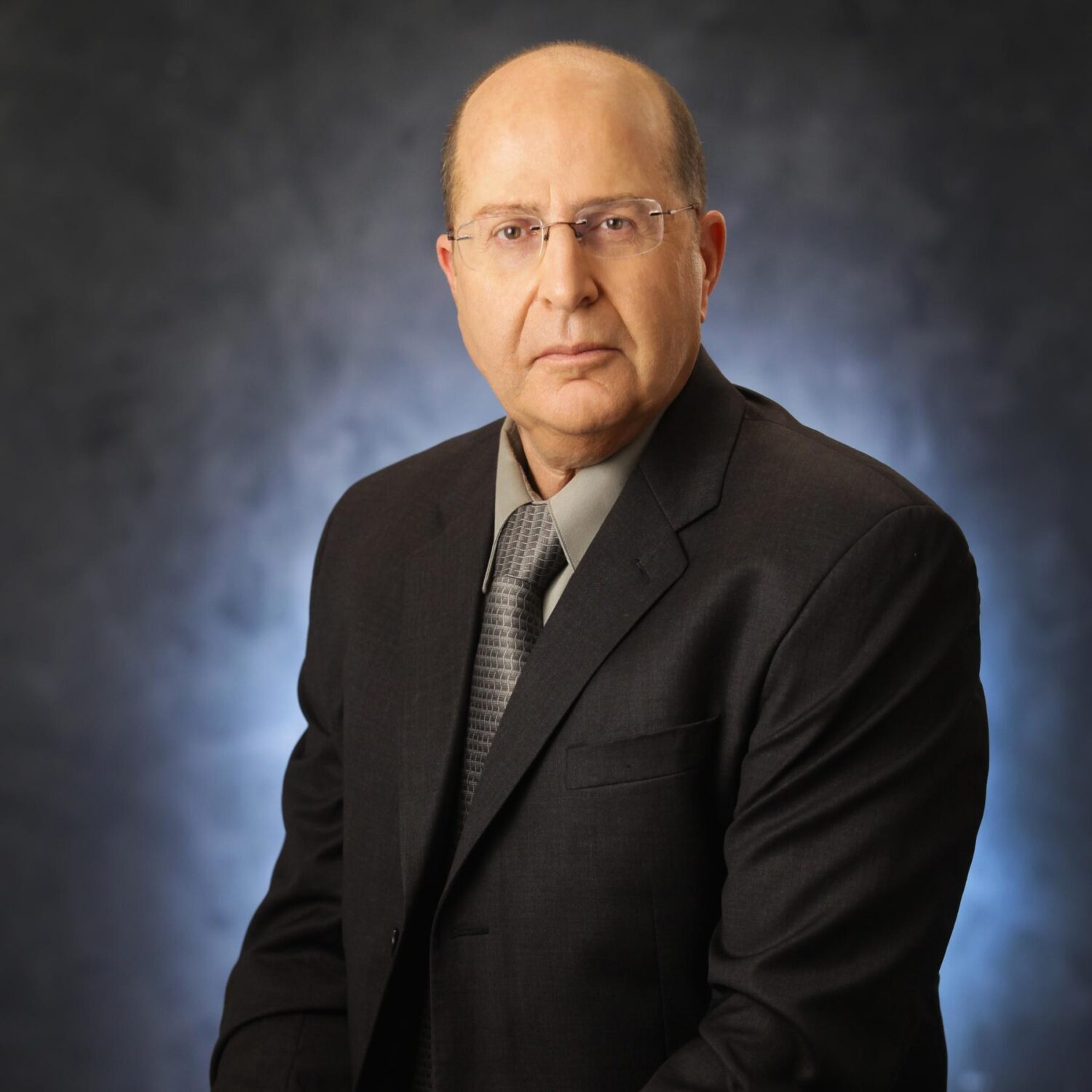
Nearly two months after the March 17 elections in 2015—and six months after the previous government fell—Israelis welcomed a new cabinet into office. The swearing-in of that cabinet capped a six-week period of coalition negotiations, from which Prime Minister Binyamin Netanyahu managed to eke out the thinnest of coalition majorities in the Knesset.
Six months ago, Netanyahu called elections, ostensibly to seek a stronger, more stable government. Instead, he leaves the coalition negotiations with a government of only 61 of 120 members. On policy toward the Palestinians, this government is viewed as more right-wing than its predecessor, with more power for the settlement movement and less for centrist elements that support talks with the Palestinian Authority.
On Iran, meanwhile, the change in government is unlikely to change policy. That issue is one of deep personal importance to the prime minister, who is firmly opposed to the nuclear deal that the P5+1 is now trying to reach with Iran, and he is likely to direct policy on it personally, just as he did during his previous term. In Israel’s proportional representation system, no party has ever won a Knesset majority on its own. Instead, a fragmented electorate—reflecting a fragmented society—has given its votes to a host of parties, representing different societal sectors and worldviews.
On 17 March 2015, when Netanyahu’s Likud won an unexpectedly high 30 seats at the polls, analysts expected the ruling party to entrench its power further in government. Instead, as Netanyahu learned, 30 seats are not 61. To get to that majority, Netanyahu had to entice the smaller parties to enter the coalition, and those parties used their negotiating leverage to the fullest. In the end, Likud retained fewer key ministries than expected, to the consternation of its key Knesset members. Worse for Likud, the ruling party (along with its current coalition partners) may need to surrender more seats if Netanyahu manages to bring other party factions into government.
Netanyahu is expected to move in this direction (and reportedly has already made such attempts), either by bringing full parties aboard or by poaching fragments of parties into the fold. (Under Israeli law, one-third of the Knesset members in any party can break off and form its own faction and then enter the government). So the incoming cabinet includes some Likud stalwarts (especially those personally loyal to Netanyahu), as well as a large number of ministers from the other coalition partners.
Below are some of the key names to watch in the months—and, if the government survives, years—to come:
Binyamin Netanyahu (foreign minister, communications minister) (Likud)

In assembling his cabinet, Netanyahu decided to keep two ministries for himself. The foreign ministry, high in prestige but considered to have little power, is viewed by many as a potential seat for opposition leader Yitzhak Herzog, should he decide to bring his Zionist Union list into a unity government. Holding the communications portfolio will enable Netanyahu to take charge of controversial reforms that critics claim are aimed at tipping the media in Netanyahu’s favour. On these reforms, Netanyahu has so far held his cards closely, but some speculate that he intends to enable the establishment of a new, right-leaning television channel that will support his policies.
Moshe “Bogie” Yaalon (defence minister) (Likud)

The current defence minister, a former Israel Defense Forces (IDF) chief of staff viewed as a competent steward of the country’s sprawling defence sector, will continue in office. On the Palestinian issue, Yaalon is viewed as a hardened sceptic who distrusts the willingness and the ability of the Palestinians to implement a two-state solution, but he is not viewed as an ideological supporter of Greater Israel. Yaalon is expected to continue to advocate for the defence sector against potential budget cuts and to enable Netanyahu to fend off ideological criticism from the right during military campaigns.
Moshe Kahlon (finance minister) (Kulanu)

Kahlon, a former Likudnik, broke from his former political home to found a party aimed at lowering Israel’s staggering cost of living. In coalition talks, Kahlon received the “toolkit” he said he needed to enact needed reforms. First and foremost, these reforms include expediting the approvals process to increase the housing stock and lower prices, but Kahlon also seeks to open Israel’s banking sector (currently dominated by two banks) to greater competition. With the immense power of the finance ministry comes the test: Will Kahlon deliver? Time will tell. Kahlon has already drawn criticism for reneging on a campaign promise and recusing himself from discussions on Israel’s important natural-gas sector.
Ayelet Shaked (justice minister) (Bayit Yehudi)

Shaked has proven to be the most controversial of the incoming cabinet members. In the past, Shaked has supported bills that would curb the power of Israel’s Supreme Court. That position has generated some sympathy because of the perception that the court has leaned unjustifiably to the left but has also generated concern about the impact on Israel’s independent judiciary and the rule of law. Critics are concerned that Shaked, as justice minister, will undermine the independence of the courts and other elements of the judicial system. Shaked has reassured her critics, but dissension about her policies will continue. She will probably also remain a voice against concessions to the Palestinians, and she drew fire last summer for endorsing a call to kill the mothers of Palestinian militants.
Aryeh Deri (economy minister, minister of development of the Negev and Galilee) (Shas)

After serving prison time for bribe-taking, Deri returned to the political stage in 2011 and is now the talented politician who heads the Mizrahi ultra-Orthodox Shas movement. Deri is expected to use his ministries to help advance his sector’s interests. He has also shown some interest in competing with Kahlon in lowering the cost of living by appointing Itzik Alrov, a well-known social activist and leader of one of the 2011 social protest movements, as an adviser.[/two_third]
Naftali Bennett (education minister) (Bayit Yehudi)

Bennett might have preferred a cabinet upgrade beyond the education portfolio, but the ministry is important to the religious Zionist base of his Bayit Yehudi party. In the ministry, Bennett is expected to ensure that the religious Zionist sector’s schools remain well-funded and that Israeli schools in general increase hours of instruction in Bible and Jewish history. Still, Bennett has traditionally shown interest in goals that are not strictly sectoral, such as taking on Israel’s powerful and unpopular ports unions, as a means for broadening his political appeal. He will also advocate for the settlement movement and harder-line positions toward the Palestinians.[/two_third]
Yaakov Litzman (deputy health minister) (United Torah Judaism)

Because of its religious objections to Zionism, the United Torah Judaism party does not accept ranks of the full minister. Rather, it accepts positions as “deputy minister,” though with freedom of action as ministers. In the ministry, Litzman is expected to undo the reforms of his predecessor aimed at limiting the practice of private medicine in public hospitals. More broadly, he and his party will ensure the return of budgets for yeshivas and their students and the rollback of plans to include yeshiva students in Israel’s military draft. Those reforms were pushed forward in the last coalition by Yair Lapid’s Yesh Atid party, and the debate over them will remain important in Israeli politics.[/two_third]
Gilad Erdan (internal security minister, strategic affairs minister) (Likud)

The drama over Erdan’s place in the cabinet ended with a final deal between him and Netanyahu. Erdan, a popular Likud politician second on the party’s Knesset list after Netanyahu, was initially left out of the cabinet, a move viewed by many as an attempt by Netanyahu to sideline a potential rival. Eventually, Netanyahu relented and co-opted Erdan with a package including an upgraded internal security ministry, a role as government point man on the Iran issue, and responsibility for public diplomacy. This necessitated yanking some powers from other Likud politicians, including Zeev Elkin and Yuval Steinitz, sharpening the rancour in the Likud ranks. Netanyahu will need to navigate this tense situation, too, even as he balances among the various coalition partners.[/two_third]
With the cabinet now installed, Israel’s 34th government has begun its work. With the topsy-turvy nature of Israeli politics, expect more changes and developments in the months ahead.


